List of countries by system of government
This is a list of sovereign states by system of government. There is also a political mapping of the world that shows what form of government each country has, as well as a brief description of what each form of government entails. The list is colour-coded according to the type of government, for example: blue represents a republic with an executive head of state, and red is a constitutional monarchy with a ceremonial head of state. The colour-coding also appears on the following map, representing the same government categories. The legend of what the different colours represent is found just below the map.

| Part of the Politics series |
| Basic forms of government |
|---|
| List of forms of government |
|
|
Certain states have been defined as having more than one system of government or a hybrid system – for instance, Poland possesses a semi-presidential government where the President appoints the Prime Minister or can veto legislation passed by parliament, but its Constitution defines the country as a parliamentary republic and its ministry is subject to parliamentary confidence.[1][2][3][4][5][6]
List of countries
Map

- Legend
- Presidential republic: Head of state is a president that is the head of government and is independent of legislature
- Semi-presidential republic: Head of state is a president that has some executive powers and is independent of legislature; remaining executive power is vested in ministry that is subject to parliamentary confidence
- Republic with an executive presidency or directory nominated by or elected by the legislature: President or Directory is both head of state and government; ministry, including the president, may or may not be subject to parliamentary confidence
- Parliamentary republic: Head of state is a president that is mostly or entirely ceremonial; ministry is subject to parliamentary confidence
- Constitutional monarchy (ceremonial): Head of state is a monarch that is mostly or entirely ceremonial; ministry is subject to parliamentary confidence
- Constitutional monarchy (executive): Head of state is an executive monarch; monarch personally exercises power in concert with other institutions; sometimes known as a semi-constitutional monarchy
- Absolute monarchy: Head of state is executive; all authority vested in absolute monarch
- One-party state: Head of state is executive or ceremonial; power constitutionally linked to a single political party
- Countries in which constitutional provisions for government have been suspended (e.g. military juntas)
- Overseas possessions, colonies, and places without governments
Note: this chart represent de jure systems of government, not the de facto degree of democracy. Several states that are constitutional republics are in practice ruled as authoritarian states.
UN member states and observers
| Name | Constitutional form | Head of state | Basis of executive legitimacy |
|---|---|---|---|
| Provisional | n/a | No constitutionally-defined basis to current regime[note 1] | |
| Republic | Ceremonial | Ministry is subject to parliamentary confidence | |
| Republic | Executive | Presidency independent of legislature; ministry is subject to parliamentary confidence | |
| Constitutional monarchy | Ceremonial | Ministry is subject to parliamentary confidence | |
| Republic | Executive | Presidency is independent of legislature | |
| Constitutional monarchy | Ceremonial | Ministry is subject to parliamentary confidence | |
| Republic | Executive | Presidency is independent of legislature | |
| Republic | Ceremonial | Ministry is subject to parliamentary confidence | |
| Constitutional monarchy | Ceremonial | Ministry is subject to parliamentary confidence | |
| Republic | Ceremonial | Ministry is subject to parliamentary confidence | |
| Republic | Executive | Presidency independent of legislature; ministry is subject to parliamentary confidence | |
| Constitutional monarchy | Ceremonial | Ministry is subject to parliamentary confidence | |
| Constitutional monarchy | Executive | Monarch personally exercises power in concert with other institutions | |
| Republic | Ceremonial | Ministry is subject to parliamentary confidence | |
| Republic | Ceremonial | Ministry is subject to parliamentary confidence | |
| Republic | Executive | Presidency is independent of legislature | |
| Constitutional monarchy | Ceremonial | Ministry is subject to parliamentary confidence | |
| Constitutional monarchy | Ceremonial | Ministry is subject to parliamentary confidence | |
| Republic | Executive | Presidency is independent of legislature | |
| Constitutional monarchy | Executive | Monarch personally exercises power in concert with other institutions | |
| Republic | Executive | Presidency is independent of legislature | |
| Republic | Ceremonial | Ministry is subject to parliamentary confidence | |
| Republic | Executive | Presidency or Directory is elected by legislature; ministry may be, or not be, subject to parliamentary confidence | |
| Republic | Executive | Presidency is independent of legislature | |
| Absolute monarchy | Executive | All authority vested in absolute monarch | |
| Republic | Ceremonial | Ministry is subject to parliamentary confidence | |
| Provisional | n/a | All authority vested in a committee of the nation's military leaders for the duration of a state of emergency; constitutional provisions for government are suspended | |
| Republic | Executive | Presidency is independent of legislature | |
| Constitutional monarchy | Ceremonial | Ministry is subject to parliamentary confidence | |
| Republic | Executive | Presidency is independent of legislature | |
| Constitutional monarchy | Ceremonial | Ministry is subject to parliamentary confidence | |
| Republic | Executive | Presidency independent of legislature; ministry is subject to parliamentary confidence | |
| Republic | Executive | Presidency is independent of legislature | |
| Provisional | n/a | All authority vested in a committee of the nation's military leaders for the duration of a state of emergency; constitutional provisions for government are suspended | |
| Republic | Executive | Presidency is independent of legislature | |
| Republic | Ceremonial | Power constitutionally linked to a single political party[note 2] For more info see Politics of China. | |
| Republic | Executive | Presidency is independent of legislature | |
| Republic | Executive | Presidency is independent of legislature | |
| Republic | Executive | Presidency independent of legislature; ministry is subject to parliamentary confidence | |
| Republic | Executive | Presidency independent of legislature; ministry is subject to parliamentary confidence | |
| Republic | Executive | Presidency is independent of legislature | |
| Republic | Executive | Presidency is independent of legislature | |
| Republic | Ceremonial | Ministry is subject to parliamentary confidence | |
| Republic | Executive | Power constitutionally linked to a single political party | |
| Republic | Executive | Presidency is independent of legislature | |
| Republic | Ceremonial | Ministry is subject to parliamentary confidence | |
| Constitutional monarchy | Ceremonial | Ministry is subject to parliamentary confidence | |
| Republic | Executive | Presidency is independent of legislature | |
| Republic | Ceremonial | Ministry is subject to parliamentary confidence | |
| Republic | Executive | Presidency is independent of legislature | |
| Republic | Executive | Presidency independent of legislature; ministry is subject to parliamentary confidence | |
| Republic | Executive | Presidency is independent of legislature | |
| Republic | Executive | Presidency independent of legislature; ministry is subject to parliamentary confidence | |
| Republic | Executive | Presidency is independent of legislature | |
| Republic | Executive | Presidency is independent of legislature | |
| Republic | Executive | Power constitutionally linked to a single political party | |
| Republic | Ceremonial | Ministry is subject to parliamentary confidence | |
| Absolute monarchy | Executive | All authority vested in absolute monarch | |
| Republic | Ceremonial | Ministry is subject to parliamentary confidence | |
| Republic | Ceremonial | Ministry is subject to parliamentary confidence | |
| Republic | Ceremonial | Ministry is subject to parliamentary confidence | |
| Republic | Executive | Presidency independent of legislature; ministry is subject to parliamentary confidence | |
| Provisional | n/a | All authority vested in a committee of the nation's military leaders for the duration of a state of emergency; constitutional provisions for government are suspended | |
| Republic | Executive | Presidency is independent of legislature | |
| Republic | Ceremonial | Ministry is subject to parliamentary confidence | |
| Republic | Ceremonial | Ministry is subject to parliamentary confidence | |
| Republic | Executive | Presidency is independent of legislature | |
| Republic | Ceremonial | Ministry is subject to parliamentary confidence | |
| Constitutional monarchy | Ceremonial | Ministry is subject to parliamentary confidence | |
| Republic | Executive | Presidency is independent of legislature | |
| Provisional | n/a | All authority vested in a committee of the nation's military leaders for the duration of a state of emergency; constitutional provisions for government are suspended | |
| Republic | Executive | Presidency independent of legislature; ministry is subject to parliamentary confidence | |
| Republic | Executive | Presidency or Directory is elected by legislature; ministry may be, or not be, subject to parliamentary confidence | |
| Republic | Executive | Presidency independent of legislature; ministry is subject to parliamentary confidence | |
| Republic | Executive | Presidency is independent of legislature | |
| Republic | Ceremonial | Ministry is subject to parliamentary confidence | |
| Republic | Ceremonial | Ministry is subject to parliamentary confidence | |
| Republic | Ceremonial | Ministry is subject to parliamentary confidence | |
| Republic | Executive | Presidency is independent of legislature | |
| Republic | Executive | Presidency is independent of legislature | |
| Republic | Ceremonial | Ministry is subject to parliamentary confidence | |
| Republic | Ceremonial | Ministry is subject to parliamentary confidence | |
| Republic | Ceremonial | Ministry is subject to parliamentary confidence | |
| Republic | Ceremonial | Ministry is subject to parliamentary confidence | |
| Constitutional monarchy | Ceremonial | Ministry is subject to parliamentary confidence | |
| Constitutional monarchy | Ceremonial | Ministry is subject to parliamentary confidence | |
| Constitutional monarchy | Executive | Monarch personally exercises power in concert with other institutions | |
| Republic | Executive | Presidency independent of legislature; ministry is subject to parliamentary confidence | |
| Republic | Executive | Presidency is independent of legislature | |
| Republic | Executive | Presidency or Directory is elected by legislature; ministry may be, or not be, subject to parliamentary confidence | |
| Constitutional monarchy | Executive | Monarch personally exercises power in concert with other institutions | |
| Republic | Executive | Presidency is independent of legislature | |
| Republic | Executive | Power constitutionally linked to a single political party | |
| Republic | Ceremonial | Ministry is subject to parliamentary confidence | |
| Republic | Ceremonial | Ministry is subject to parliamentary confidence | |
| Constitutional monarchy | Ceremonial | Ministry is subject to parliamentary confidence | |
| Republic | Executive | Presidency is independent of legislature | |
| Provisional | n/a | No constitutionally-defined basis to current regime | |
| Constitutional monarchy | Executive | Monarch personally exercises power in concert with other institutions | |
| Republic | Executive | Presidency independent of legislature; ministry is subject to parliamentary confidence | |
| Constitutional monarchy | Ceremonial | Ministry is subject to parliamentary confidence | |
| Republic | Executive | Presidency independent of legislature; ministry is subject to parliamentary confidence | |
| Republic | Executive | Presidency is independent of legislature | |
| Constitutional monarchy | Ceremonial | Ministry is subject to parliamentary confidence | |
| Republic | Executive | Presidency is independent of legislature | |
| Provisional | n/a | All authority vested in a committee of the nation's military leaders for the duration of a state of emergency; constitutional provisions for government are suspended | |
| Republic | Ceremonial | Ministry is subject to parliamentary confidence | |
| Republic | Executive | Presidency or Directory is elected by legislature; ministry may be, or not be, subject to parliamentary confidence | |
| Republic | Executive | Presidency independent of legislature; ministry is subject to parliamentary confidence | |
| Republic | Ceremonial | Ministry is subject to parliamentary confidence | |
| Republic | Executive | Presidency is independent of legislature | |
| Republic | Executive | Presidency or Directory is elected by legislature; ministry may be, or not be, subject to parliamentary confidence | |
| Republic | Ceremonial | Ministry is subject to parliamentary confidence | |
| Constitutional monarchy | Executive | Monarch personally exercises power in concert with other institutions | |
| Republic | Executive | Presidency independent of legislature; ministry is subject to parliamentary confidence | |
| Republic | Ceremonial | Ministry is subject to parliamentary confidence | |
| Constitutional monarchy | Executive | Monarch personally exercises power in concert with other institutions | |
| Republic | Executive | Presidency independent of legislature; ministry is subject to parliamentary confidence | |
| Provisional | n/a | All authority vested in a committee of the nation's military leaders for the duration of a state of emergency; constitutional provisions for government are suspended | |
| Republic | Executive | Presidency independent of legislature; ministry is subject to parliamentary confidence | |
| Republic | Executive | Presidency or Directory is elected by legislature; ministry may be, or not be, subject to parliamentary confidence | |
| Republic | Ceremonial | Ministry is subject to parliamentary confidence | |
| Constitutional monarchy | Ceremonial | Ministry is subject to parliamentary confidence | |
| Constitutional monarchy | Ceremonial | Ministry is subject to parliamentary confidence | |
| Republic | Executive | Presidency is independent of legislature | |
| Provisional | n/a | All authority vested in a committee of the nation's military leaders for the duration of a state of emergency; constitutional provisions for government are suspended | |
| Republic | Executive | Presidency is independent of legislature | |
| Republic | Executive | Power constitutionally linked to a single political party | |
| Republic | Ceremonial | Ministry is subject to parliamentary confidence | |
| Constitutional monarchy | Ceremonial | Ministry is subject to parliamentary confidence | |
| Absolute monarchy | Executive | All authority vested in absolute monarch | |
| Republic | Ceremonial | Ministry is subject to parliamentary confidence | |
| Republic | Executive | Presidency is independent of legislature | |
| Republic | Executive | Presidency independent of legislature; ministry is subject to parliamentary confidence | |
| Republic | Executive | Presidency is independent of legislature | |
| Constitutional monarchy | Ceremonial | Ministry is subject to parliamentary confidence | |
| Republic | Executive | Presidency is independent of legislature | |
| Republic | Executive | Presidency is independent of legislature | |
| Republic | Executive | Presidency is independent of legislature | |
| Republic | Ceremonial | Ministry is subject to parliamentary confidence[note 3] | |
| Republic | Executive | Presidency independent of legislature; ministry is subject to parliamentary confidence | |
| Constitutional monarchy | Executive | Monarch personally exercises power in concert with other institutions | |
| Republic | Executive | Presidency independent of legislature; ministry is subject to parliamentary confidence | |
| Republic | Executive | Presidency independent of legislature; ministry is subject to parliamentary confidence | |
| Republic | Executive | Presidency is independent of legislature | |
| Constitutional monarchy | Ceremonial | Ministry is subject to parliamentary confidence | |
| Constitutional monarchy | Ceremonial | Ministry is subject to parliamentary confidence | |
| Constitutional monarchy | Ceremonial | Ministry is subject to parliamentary confidence | |
| Republic | Ceremonial | Ministry is subject to parliamentary confidence | |
| Republic | Ceremonial | Ministry is subject to parliamentary confidence | |
| Republic | Executive | Presidency independent of legislature; ministry is subject to parliamentary confidence | |
| Absolute monarchy | Executive | All authority vested in absolute monarch | |
| Republic | Executive | Presidency is independent of legislature | |
| Republic | Ceremonial | Ministry is subject to parliamentary confidence | |
| Republic | Executive | Presidency is independent of legislature | |
| Republic | Executive | Presidency is independent of legislature | |
| Republic | Ceremonial | Ministry is subject to parliamentary confidence | |
| Republic | Ceremonial | Ministry is subject to parliamentary confidence | |
| Republic | Ceremonial | Ministry is subject to parliamentary confidence | |
| Constitutional monarchy | Ceremonial | Ministry is subject to parliamentary confidence | |
| Republic | Ceremonial | Ministry is subject to parliamentary confidence | |
| Republic | Executive | Presidency or Directory is elected by legislature; ministry may be, or not be, subject to parliamentary confidence | |
| Republic | Executive | Presidency is independent of legislature | |
| Republic | Executive | Presidency is independent of legislature | |
| Constitutional monarchy | Ceremonial | Ministry is subject to parliamentary confidence | |
| Republic | Executive | Presidency independent of legislature; ministry is subject to parliamentary confidence | |
| Provisional | n/a | All authority vested in a committee of the nation's military leaders for the duration of a state of emergency; constitutional provisions for government are suspended | |
| Republic | Executive | Presidency or Directory is elected by legislature; ministry may be, or not be, subject to parliamentary confidence | |
| Constitutional monarchy | Ceremonial | Ministry is subject to parliamentary confidence | |
| Republic | Executive | Presidency or Directory is elected by legislature; ministry may be, or not be, subject to parliamentary confidence | |
| Republic | Executive | Presidency is independent of legislature | |
| Republic | Executive | Presidency is independent of legislature | |
| Republic | Executive | Presidency is independent of legislature | |
| Constitutional monarchy | Ceremonial | Ministry is subject to parliamentary confidence | |
| Republic | Executive | Presidency is independent of legislature | |
| Constitutional monarchy | Executive | Monarch personally exercises power in concert with other institutions | |
| Republic | Ceremonial | Ministry is subject to parliamentary confidence | |
| Republic | Executive | Presidency independent of legislature; ministry is subject to parliamentary confidence | |
| Republic | Executive | Presidency is independent of legislature | |
| Republic | Executive | Presidency is independent of legislature | |
| Constitutional monarchy | Ceremonial | Ministry is subject to parliamentary confidence | |
| Republic | Executive | Presidency is independent of legislature | |
| Republic | Executive | Presidency independent of legislature; ministry is subject to parliamentary confidence | |
| Constitutional monarchy | Executive | Monarch personally exercises power in concert with other institutions | |
| Constitutional monarchy | Ceremonial | Ministry is subject to parliamentary confidence | |
| Republic | Executive | Presidency is independent of legislature | |
| Republic | Executive | Presidency is independent of legislature | |
| Republic | Executive | Presidency is independent of legislature | |
| Republic | Ceremonial | Ministry is subject to parliamentary confidence | |
| Absolute monarchy | Executive | All authority vested in absolute monarch | |
| Republic | Executive | Presidency is independent of legislature | |
| Republic | Executive | Power constitutionally linked to a single political party | |
| Provisional | n/a | No constitutionally-defined basis to current regime[note 4] | |
| Republic | Executive | Presidency is independent of legislature | |
| Republic | Executive | Presidency is independent of legislature |
Other states
| Name | Constitutional form | Head of state | Basis of executive legitimacy |
|---|---|---|---|
| Republic | Executive | Presidency is independent of legislature | |
| Constitutional monarchy | Ceremonial | Ministry is subject to parliamentary confidence | |
| Republic | Ceremonial | Ministry is subject to parliamentary confidence | |
| Constitutional monarchy | Ceremonial | Ministry is subject to parliamentary confidence | |
| Republic | Executive | Presidency independent of legislature; ministry is subject to parliamentary confidence | |
| Republic | Executive | Power constitutionally linked to a single political party | |
| Republic | Executive | Presidency is independent of legislature | |
| Republic | Executive | Presidency independent of legislature; ministry is subject to parliamentary confidence | |
| Republic | Executive | Presidency independent of legislature; ministry is subject to parliamentary confidence | |
| Republic | Executive | Presidency is independent of legislature |
Systems of governance
Italics indicate states with limited recognition.
Presidential systems
These are systems in which a president is the active head of the executive branch of government, and is elected and remains in office independently of the legislature.
In full presidential systems, the president is both head of state and head of government. There is generally no prime minister, although if one exists, in most cases they serve purely at the discretion of the president.
The following list includes democratic and non-democratic states:
Presidential systems without a prime minister
Nations with limited recognition are in italics.
Presidential systems with a prime minister
The following countries have presidential systems where a post of prime minister (official title may vary) exists alongside that of the president. The president is still both the head of state and government and the prime minister's roles are mostly to assist the president.
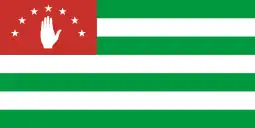 Abkhazia
Abkhazia Argentina (see Chief of the Cabinet of Ministers)
Argentina (see Chief of the Cabinet of Ministers)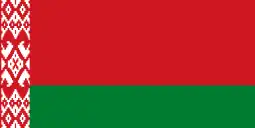 Belarus
Belarus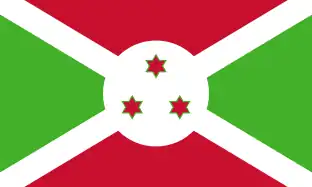 Burundi
Burundi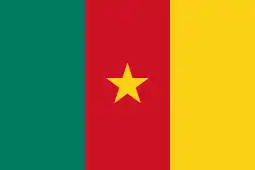 Cameroon
Cameroon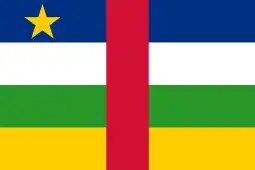 Central African Republic
Central African Republic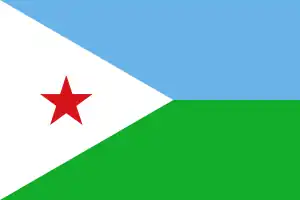 Djibouti
Djibouti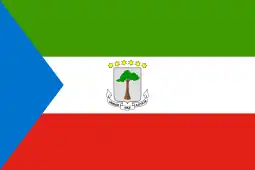 Equatorial Guinea
Equatorial Guinea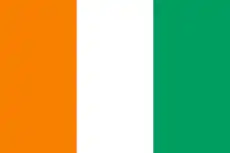 Ivory Coast
Ivory Coast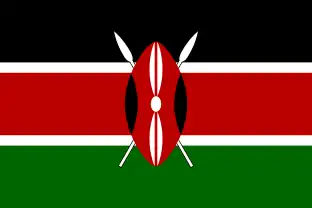 Kenya (see Prime Cabinet Secretary)
Kenya (see Prime Cabinet Secretary)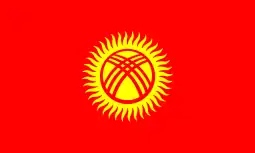 Kyrgyzstan
Kyrgyzstan Peru
Peru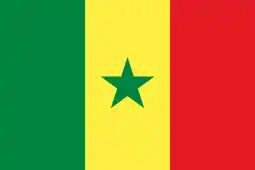 Senegal
Senegal Sierra Leone (see Chief minister)
Sierra Leone (see Chief minister) South Korea
South Korea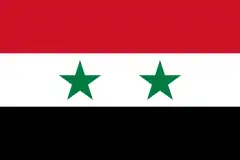 Syria
Syria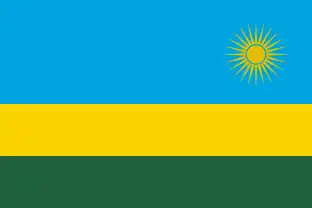 Rwanda
Rwanda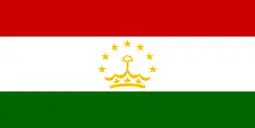 Tajikistan
Tajikistan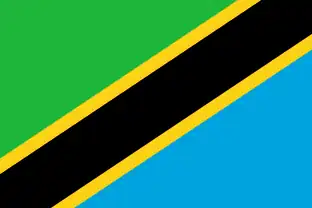 Tanzania
Tanzania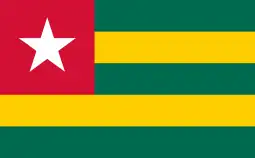 Togo
Togo.svg.png.webp) Transnistria
Transnistria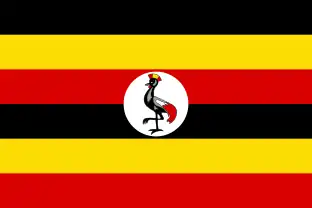 Uganda
Uganda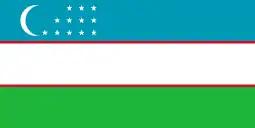 Uzbekistan
Uzbekistan
Nations with limited recognition are in italics.
Semi-presidential systems
In semi-presidential systems, there is always both a president and a head of government, commonly but not exclusively styled as a prime minister. In such systems, the president has genuine executive authority, but the role of a head of government may be exercised by the prime minister.
Premier-presidential systems
The president chooses a prime minister and cabinet from the parliament with approval from the parliament, however only the parliament may remove them from office with a vote of no confidence. The president does not have the right to dismiss the prime minister or the cabinet.
Nations with limited recognition are in italics.
President-parliamentary systems
The president is head of state and the prime minister is head of government, although the prime minister generally works under the discretion of the former more so than in a premier-presidential system. The president chooses the prime minister and the cabinet without a confidence vote from the parliament, but must have the support of a parliamentary majority for their selection. In order to remove a prime minister or their cabinet from power, the president may dismiss them or the parliament can remove them by a vote of no confidence.
Nations with limited recognition are in italics.
Parliamentary republican and related systems
In a parliamentary republic, the head of government is selected or nominated by the legislature and is also accountable to it. The head of state is ordinarily called a president and (in full parliamentary republics) is separate from the head of government, serving a largely apolitical, ceremonial role. In these systems, the head of government is usually called the prime minister, chancellor or premier. In mixed republican systems and directorial republican systems, the head of government also serves as head of state and is usually titled president.
Full parliamentary republican systems
In some full parliamentary systems, the head of state is directly elected by voters. Under other classification systems, however, these systems may instead be classed as semi-presidential systems (despite their weak presidency).[11] Full parliamentary republican systems that do not have a directly elected head of state usually use either an electoral college or a vote in the legislature to appoint the president.
Directly elected head of state
Indirectly elected head of state
Nations with limited recognition are in italics.
Parliamentary republics with an executive presidency
A combined head of state and head of government in the form of an executive president is either elected by the legislature or by voters after candidates are nominated for the post by the legislature (in the case of Kiribati), and they must maintain the confidence of the legislature to remain in office. In effect, "presidents" in this system function the same as prime ministers do in other parliamentary systems.
Assembly-independent republican systems
A combined head of state and head of government (usually titled president) is elected by the legislature but is immune from a vote of no confidence (as is their cabinet), thus acting more independently from the legislature.[29] They may or may not also hold a seat in the legislature.
Directorial republic
In a directorial republic, a council jointly exercises the powers and ceremonial roles of both the head of state and head of government. The council is elected by the parliament, but it is not subject to parliamentary confidence during its fixed term.
Constitutional monarchies
These are systems in which the head of state is a constitutional monarch; the existence of their office and their ability to exercise their authority is established and restrained by constitutional law.
Constitutional monarchies with ceremonial/non-executive monarchs
Systems in which a prime minister is the active head of the executive branch of government. In some cases, the prime minister is also leader of the legislature, while in other cases the executive branch is clearly separated from legislature (although the entire cabinet or individual ministers must step down in the case of a vote of no confidence).[31][32] The head of state is a constitutional monarch who normally only exercises his or her powers with the consent of the government, the people and/or their representatives (except in emergencies, e.g. a constitutional crisis or a political deadlock).[note 14]
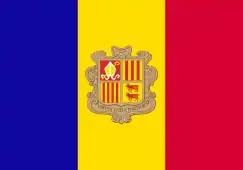 Andorra[note 15]
Andorra[note 15]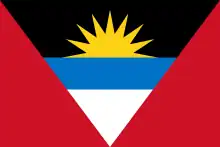 Antigua and Barbuda[note 16]
Antigua and Barbuda[note 16].svg.png.webp) Australia[note 16]
Australia[note 16]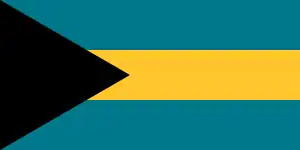 Bahamas[note 16]
Bahamas[note 16].svg.png.webp) Belgium
Belgium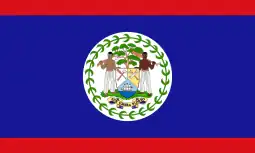 Belize[note 16]
Belize[note 16]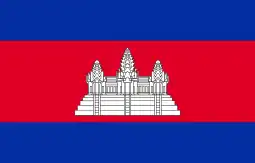 Cambodia
Cambodia.svg.png.webp) Canada[note 16]
Canada[note 16]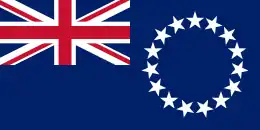 Cook Islands[note 16][note 17]
Cook Islands[note 16][note 17] Denmark
Denmark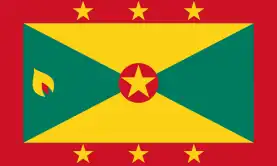 Grenada[note 16]
Grenada[note 16]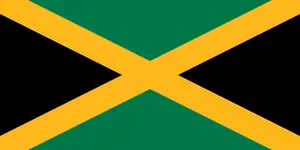 Jamaica[note 16]
Jamaica[note 16] Japan
Japan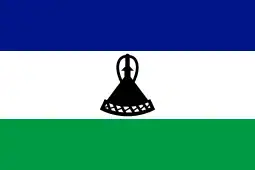 Lesotho
Lesotho Luxembourg
Luxembourg Malaysia
Malaysia Netherlands
Netherlands New Zealand[note 16][note 17]
New Zealand[note 16][note 17]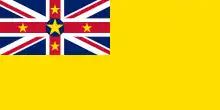 Niue[note 16][note 17]
Niue[note 16][note 17] Norway
Norway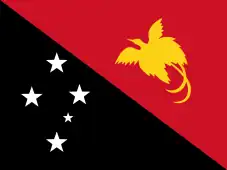 Papua New Guinea[note 16]
Papua New Guinea[note 16]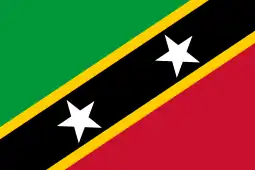 Saint Kitts and Nevis[note 16]
Saint Kitts and Nevis[note 16] Saint Lucia[note 16]
Saint Lucia[note 16]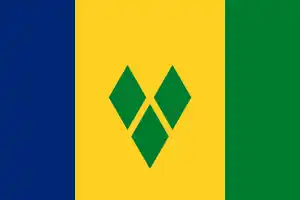 Saint Vincent and the Grenadines[note 16]
Saint Vincent and the Grenadines[note 16]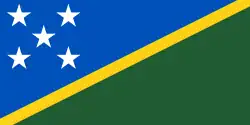 Solomon Islands[note 16]
Solomon Islands[note 16] Spain
Spain Sweden
Sweden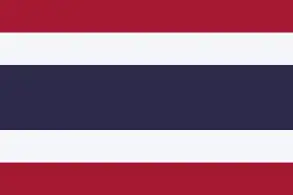 Thailand
Thailand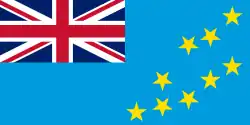 Tuvalu[note 16]
Tuvalu[note 16] United Kingdom[note 16]
United Kingdom[note 16]
Constitutional monarchies with active monarchs
The prime minister is the nation's active executive, but the monarch still has considerable political powers that can be used at their own discretion.
Absolute monarchies
Specifically, monarchies in which the monarch's exercise of power is unconstrained by any substantive constitutional law. The monarch acts as both head of state and head of government.
One-party states
States in which political power is by law concentrated within one political party whose operations are largely fused with the government hierarchy (in contrast to states where a multi-party system formally exists, but this fusion is achieved anyway through election fraud or underdeveloped multi-party traditions).
 China (Communist Party leads eight minor political parties) (list)
China (Communist Party leads eight minor political parties) (list)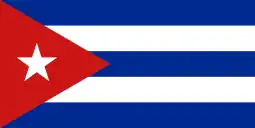 Cuba (Communist Party) (list)
Cuba (Communist Party) (list)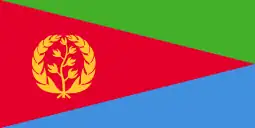 Eritrea (People's Front for Democracy and Justice) (list)
Eritrea (People's Front for Democracy and Justice) (list)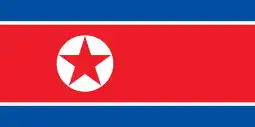 North Korea (Workers' Party leads the Democratic Front) (list)
North Korea (Workers' Party leads the Democratic Front) (list)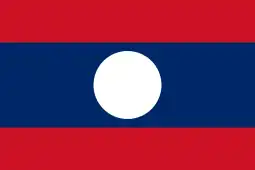 Laos (People's Revolutionary Party leads the Front for National Construction) (list)
Laos (People's Revolutionary Party leads the Front for National Construction) (list)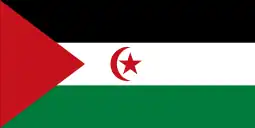 Sahrawi Arab Democratic Republic (Polisario Front)
Sahrawi Arab Democratic Republic (Polisario Front)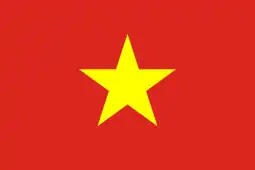 Vietnam (Communist Party leads the Fatherland Front) (list)
Vietnam (Communist Party leads the Fatherland Front) (list)
Nations with limited recognition are in italics.
Military juntas
A committee of the nation's military leaders controls the government for the duration of a state of emergency. Constitutional provisions for government are suspended in these states; constitutional forms of government are stated in parentheses.
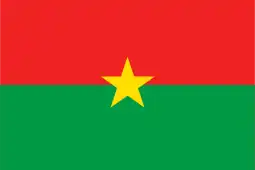 Burkina Faso (semi-presidential republic)[36]
Burkina Faso (semi-presidential republic)[36]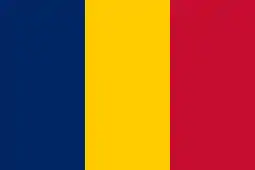 Chad (presidential republic)[37]
Chad (presidential republic)[37]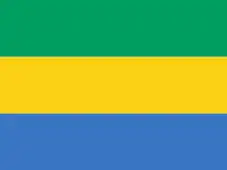 Gabon (presidential republic)[38]
Gabon (presidential republic)[38]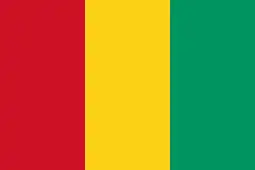 Guinea (presidential republic)[39][40]
Guinea (presidential republic)[39][40]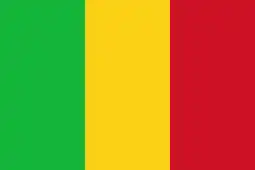 Mali (presidential republic)[41]
Mali (presidential republic)[41]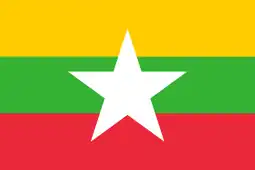 Myanmar (assembly-independent republic)[42]
Myanmar (assembly-independent republic)[42]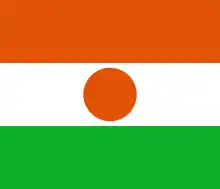 Niger (semi-presidential republic)[43]
Niger (semi-presidential republic)[43]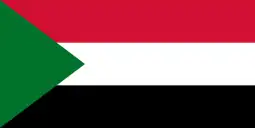 Sudan (presidential republic)[44][45][46]
Sudan (presidential republic)[44][45][46]
Systems of internal structure
Unitary states
A state governed as a single power in which the central government is ultimately supreme and any administrative divisions (sub-national units) exercise only the powers that the central government chooses to delegate. The majority of states in the world have a unitary system of government. Of the 193 UN member states, 126 are governed as centralized unitary states, and an additional 40 are regionalized unitary states.
Centralized unitary states
States in which most power is exercised by the central government. What local authorities do exist have few powers.
Regionalized unitary states
States in which the central government has delegated some of its powers to regional authorities, but where constitutional authority ultimately remains entirely at a national level.
 Azerbaijan (59 districts, and 1 autonomous republic)
Azerbaijan (59 districts, and 1 autonomous republic).svg.png.webp) Bolivia (9 departments)
Bolivia (9 departments) Chile (16 regions)
Chile (16 regions) People's Republic of China (22 provinces, 5 autonomous regions, 4 province-level municipalities, 2 special administrative regions, and 1 claimed province)
People's Republic of China (22 provinces, 5 autonomous regions, 4 province-level municipalities, 2 special administrative regions, and 1 claimed province) Colombia (34 departments, and 1 capital district)
Colombia (34 departments, and 1 capital district) Denmark (5 regions, and 2 self-governing territories)
Denmark (5 regions, and 2 self-governing territories) Finland (19 regions, and
Finland (19 regions, and 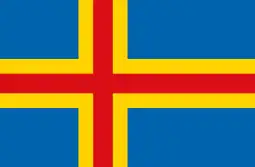 Åland)
Åland) France (18 regions, of which 6 are autonomous)
France (18 regions, of which 6 are autonomous) Georgia (9 regions, and 2 autonomous republics)
Georgia (9 regions, and 2 autonomous republics) Greece (7 decentralized administrations, and 1 autonomous monastic state)
Greece (7 decentralized administrations, and 1 autonomous monastic state)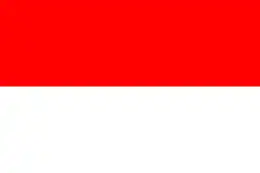 Indonesia (38 provinces, of which 9 have special status)
Indonesia (38 provinces, of which 9 have special status) Israel (6 districts, Judea and Samaria Area)
Israel (6 districts, Judea and Samaria Area) Italy (20 regions, of which 5 are autonomous)
Italy (20 regions, of which 5 are autonomous) Japan (47 prefectures)
Japan (47 prefectures)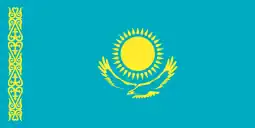 Kazakhstan (17 regions, 3 cities with region rights)
Kazakhstan (17 regions, 3 cities with region rights) Kenya (47 counties)
Kenya (47 counties) Kingdom of the Netherlands (4 constituent countries)
Kingdom of the Netherlands (4 constituent countries)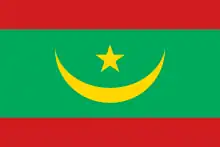 Mauritania (15 regions)
Mauritania (15 regions)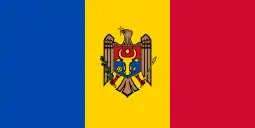 Moldova (32 districts, 3 municipalities, and 2 autonomous territorial units)
Moldova (32 districts, 3 municipalities, and 2 autonomous territorial units) New Zealand (16 regions, 1 self-administering territory, and 2 states in free association)
New Zealand (16 regions, 1 self-administering territory, and 2 states in free association)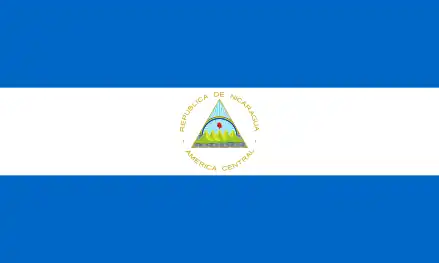 Nicaragua (15 departments, 2 autonomous regions)
Nicaragua (15 departments, 2 autonomous regions) Norway (10 counties, 1 autonomous city, 2 integral overseas areas, 3 dependencies)
Norway (10 counties, 1 autonomous city, 2 integral overseas areas, 3 dependencies) Papua New Guinea (20 provinces, 1 autonomous region, and 1 national capital district)
Papua New Guinea (20 provinces, 1 autonomous region, and 1 national capital district) Peru (25 regions, and 1 province)
Peru (25 regions, and 1 province) Philippines (one autonomous region subdivided into 5 provinces and 113 other provinces and independent cities grouped into 17 other non-autonomous regions)
Philippines (one autonomous region subdivided into 5 provinces and 113 other provinces and independent cities grouped into 17 other non-autonomous regions) Portugal (18 districts, and 2 autonomous regions)
Portugal (18 districts, and 2 autonomous regions)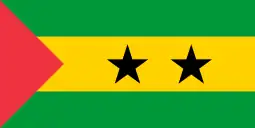 São Tomé and Príncipe (6 districts, and
São Tomé and Príncipe (6 districts, and  Príncipe)
Príncipe) Serbia (29 districts, 2 autonomous provinces (one of which is a partially recognized de facto independent state), and 1 autonomous city)
Serbia (29 districts, 2 autonomous provinces (one of which is a partially recognized de facto independent state), and 1 autonomous city) Solomon Islands (9 provinces, and 1 capital territory)
Solomon Islands (9 provinces, and 1 capital territory) South Africa (9 provinces)
South Africa (9 provinces) South Korea (8 provinces, 6 special cities, and 1 autonomous province)
South Korea (8 provinces, 6 special cities, and 1 autonomous province) Spain (17 autonomous communities, 15 communities of common-regime, 1 community of chartered regime, 3 chartered provinces, 2 autonomous cities)
Spain (17 autonomous communities, 15 communities of common-regime, 1 community of chartered regime, 3 chartered provinces, 2 autonomous cities)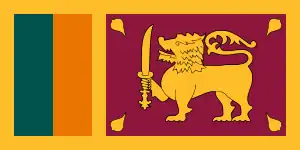 Sri Lanka (9 provinces)
Sri Lanka (9 provinces) Tajikistan (3 regions, 1 autonomous region, and 1 capital city)
Tajikistan (3 regions, 1 autonomous region, and 1 capital city) Tanzania (21 regions, and
Tanzania (21 regions, and  Zanzibar)
Zanzibar)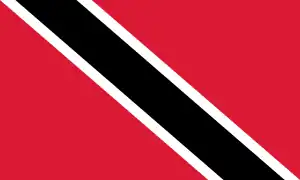 Trinidad and Tobago (9 regions, 1 autonomous island, 3 boroughs, and 2 cities)
Trinidad and Tobago (9 regions, 1 autonomous island, 3 boroughs, and 2 cities) Ukraine (24 oblasts, 2 cities with special status, and
Ukraine (24 oblasts, 2 cities with special status, and 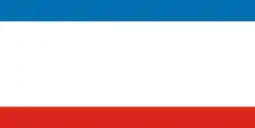 Crimea)
Crimea) United Kingdom (4 constituent countries, of which 3 have devolved administrations)
United Kingdom (4 constituent countries, of which 3 have devolved administrations) Uzbekistan (3 regions, 1 autonomous republic, and 1 independent city)
Uzbekistan (3 regions, 1 autonomous republic, and 1 independent city)
Federation
States in which the national government shares power with regional governments with which it has legal or constitutional parity. The central government may or may not be (in theory) a creation of the regional governments.
 Argentina (23 provinces and one autonomous city)
Argentina (23 provinces and one autonomous city).svg.png.webp) Australia (six states and ten territories)
Australia (six states and ten territories) Austria (nine states)
Austria (nine states).svg.png.webp) Belgium (three regions and three linguistic communities)
Belgium (three regions and three linguistic communities)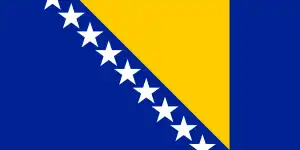 Bosnia and Herzegovina (two entities and one district that is a condominium of the two entities)
Bosnia and Herzegovina (two entities and one district that is a condominium of the two entities) Brazil (26 states and the Federal District)
Brazil (26 states and the Federal District).svg.png.webp) Canada (ten provinces and three territories)
Canada (ten provinces and three territories)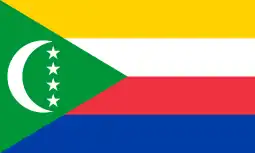 Comoros (
Comoros (.svg.png.webp) Anjouan,
Anjouan,  Grande Comore, and
Grande Comore, and .svg.png.webp) Mohéli)
Mohéli)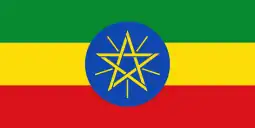 Ethiopia (10 regions and 2 chartered cities)
Ethiopia (10 regions and 2 chartered cities) Germany (16 states)
Germany (16 states)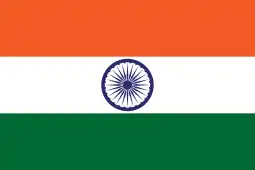 India (28 states and 8 union territories)
India (28 states and 8 union territories)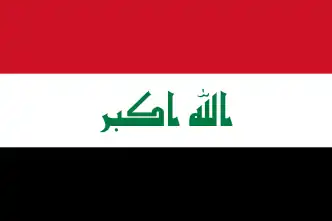 Iraq (18 governorates and one region:
Iraq (18 governorates and one region:  Kurdistan)
Kurdistan) Malaysia (13 states and three federal territories)
Malaysia (13 states and three federal territories) Mexico (32 states)
Mexico (32 states)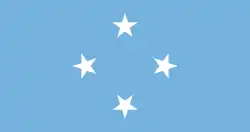 Federated States of Micronesia (
Federated States of Micronesia ( Chuuk,
Chuuk,  Kosrae,
Kosrae,  Pohnpei and
Pohnpei and  Yap)
Yap)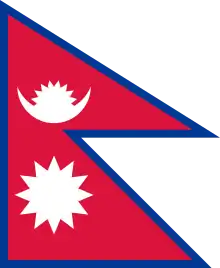 Nepal (seven provinces)
Nepal (seven provinces)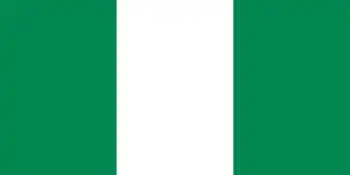 Nigeria (36 states and one federal territory: Federal Capital Territory)
Nigeria (36 states and one federal territory: Federal Capital Territory)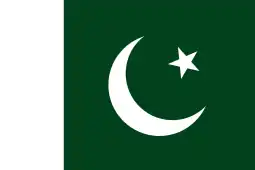 Pakistan (4 provinces, 2 autonomous territories and 1 federal territory)
Pakistan (4 provinces, 2 autonomous territories and 1 federal territory) Russia (46 oblasts, 22 republics (one of which is disputed), nine krais, four autonomous okrugs, three federal cities (one of which is disputed), one autonomous oblast)
Russia (46 oblasts, 22 republics (one of which is disputed), nine krais, four autonomous okrugs, three federal cities (one of which is disputed), one autonomous oblast) Saint Kitts and Nevis (Saint Kitts,
Saint Kitts and Nevis (Saint Kitts,  Nevis)
Nevis)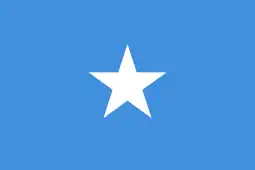 Somalia (six federal member states)
Somalia (six federal member states)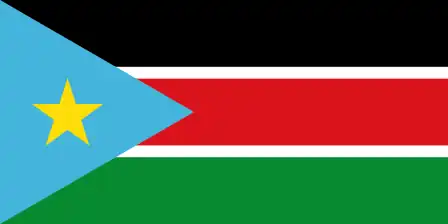 South Sudan (ten states)
South Sudan (ten states) Sudan (17 states)
Sudan (17 states).svg.png.webp) Switzerland (26 cantons)
Switzerland (26 cantons)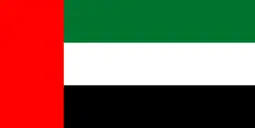 United Arab Emirates (seven emirates)
United Arab Emirates (seven emirates) United States (50 states, one incorporated territory, and one federal district:
United States (50 states, one incorporated territory, and one federal district: 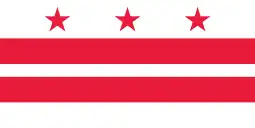 District of Columbia)
District of Columbia)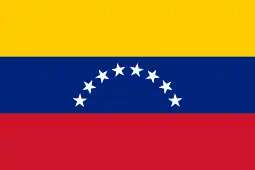 Venezuela (23 states, one capital district, and the
Venezuela (23 states, one capital district, and the  Federal Dependencies of Venezuela)
Federal Dependencies of Venezuela)
European Union
The exact political character of the European Union is debated, some arguing that it is sui generis (unique), but others arguing that it has features of a federation or a confederation. It has elements of intergovernmentalism, with the European Council acting as its collective "president", and also elements of supranationalism, with the European Commission acting as its executive and bureaucracy.[50]
See also
Notes and references
Notes
- Afghanistan: As of December 2022, despite the loss of territory to the Taliban in 2021, the Islamic Republic continues to hold Afghanistan's seat at the United Nations, with the newly reinstated Islamic Emirate remaining unrecognized by the organization.[47]
- The President of China is legally a ceremonial office; however, since 1993, the presidency has been held by the General Secretary of the Chinese Communist Party, who is the most powerful figure in the political system.[7]
- The Republic of Poland has been defined de jure by its Constitution as a parliamentary republic. However, the system is largely semi-presidential in nature as the President of Poland does exercise some power – the head of state appoints the Prime Minister as the head of government, and can veto legislation as well as dissolve parliament in certain situations. The Cabinet and Prime Minister appointed by the President are subject to a vote of confidence by the Polish Parliament (Sejm).
- Disputed between the internationally recognized Presidential Leadership Council and the Supreme Political Council.
- Iran combines the forms of a presidential republic, with a president elected by universal suffrage, and a theocracy, with a Supreme Leader who is ultimately responsible for state policy, chosen by the elected Assembly of Experts. Candidates for both the Assembly of Experts and the presidency are vetted by the appointed Guardian Council.
- Collective presidency consisting of three members; one for each major ethnic group.
- Despite having a collective head of state, Bosnia and Herzegovina's head of state is ceremonial, and as such is not executively governed by a directorial system.
- Their two-person head of state, the Captains Regent, serve for six month terms.
- Despite having a collective head of state, San Marino's head of state is ceremonial, and as such is not executively governed by a directorial system.
- The president is elected by parliament and holds a parliamentary seat, much like a prime minister, but is immune from a vote of no confidence (but not their cabinet), unlike a prime minister. Although, if a vote of no confidence is successful and they do not resign, it triggers the dissolution of the legislature and new elections (per section 92 of the Constitution).
- Holds a legislative seat.
- Elected directly by the people via double simultaneous vote.
- The President of Switzerland serves in a primus inter pares capacity amongst the Swiss Federal Council, the seven-member executive council which constitutes both the presidency and the government.
- Some monarchs are given a limited number of discretionary reserve powers only to be used in certain circumstances in accordance with their responsibility to defend the constitution.
- The Bishop of Urgell and President of France serve as ex officio co-princes who have their interests known through a representative.
- One of fifteen constitutional monarchies which recognize the Monarch of the United Kingdom as head of state, who presides over an independent government. The Monarch is titled separately in each country (e.g. King of Australia), and notionally appoints a Governor-General (GG) to each country other than the United Kingdom to act as his representative. The prime minister (PM) is the active head of the executive branch of government and also leader of the legislature. These countries may be known as "Commonwealth realms".
In many cases, the Governor-General or monarch has a lot more theoretical, or constitutional, powers than they actually exercise, except on the advice of elected officials, per constitutional convention. For example, the Constitution of Australia makes the GG the head of the executive branch (including commander-in-chief of the armed forces), although they seldom ever use this power, except on the advice of elected officials, especially the PM, which makes the PM the de facto head of government. - The Cook Islands and Niue are under the sovereignty of the Monarch of New Zealand as self-governing states in free association with New Zealand. New Zealand and its associated states, along with Tokelau and the Ross Dependency, comprise the Realm of New Zealand.
- A federal absolute monarchy in which, different monarchies, or in this case, sheikhdoms fulfill both the duty of president and prime minister, although in actuality they are monarchs.
- The Vatican is an elective absolute monarchy and a Roman Catholic theocracy; its monarch, the Pope, is the head of the global Roman Catholic Church. His power within the Vatican City State is unlimited by any constitution; however, as all its citizens and its residents are ordained Catholic clergy, members of the Swiss Guard, or their immediate family, they arguably have consented to obey the Pope or are minors. (Citizenship is jus officii, on the grounds of appointment to work in a certain capacity in the service of the Holy See and usually ceases upon cessation of the appointment. Citizenship is also extended to the spouse and children of a citizen, provided they are living together in the city; in practice, these are few in number, since the bulk of Vatican citizens are celibate Catholic clerics or religious. Some individuals are also authorized to reside in the city but do not qualify or choose not to request citizenship.)[35]
References
- "Poland 1997 (rev. 2009)". www.constituteproject.org. Retrieved 9 October 2021.
- "Poland - The World Factbook". 22 September 2021. Retrieved 8 October 2021.
- Veser, Ernst [in German] (23 September 1997). "Semi-Presidentialism-Duverger's Concept — A New Political System Model" (PDF) (in English and Chinese). Department of Education, School of Education, University of Cologne: 39–60. Retrieved 21 August 2017.
Duhamel has developed the approach further: He stresses that the French construction does not correspond to either parliamentary or the presidential form of government, and then develops the distinction of 'système politique' and 'régime constitutionnel'. While the former comprises the exercise of power that results from the dominant institutional practice, the latter is the totality of the rules for the dominant institutional practice of the power. In this way, France appears as 'presidentialist system' endowed with a 'semi-presidential regime' (1983: 587). By this standard he recognizes Duverger's pléiade as semi-presidential regimes, as well as Poland, Romania, Bulgaria and Lithuania (1993: 87).
{{cite journal}}: Cite journal requires|journal=(help) - Shugart, Matthew Søberg (September 2005). "Semi-Presidential Systems: Dual Executive and Mixed Authority Patterns" (PDF). Graduate School of International Relations and Pacific Studies. Archived from the original (PDF) on 19 August 2008. Retrieved 21 August 2017.
- Shugart, Matthew Søberg (December 2005). "Semi-Presidential Systems: Dual Executive And Mixed Authority Patterns" (PDF). French Politics. 3 (3): 323–351. doi:10.1057/palgrave.fp.8200087. Retrieved 21 August 2017.
Even if the president has no discretion in the forming of cabinets or the right to dissolve parliament, his or her constitutional authority can be regarded as 'quite considerable' in Duverger's sense if cabinet legislation approved in parliament can be blocked by the people's elected agent. Such powers are especially relevant if an extraordinary majority is required to override a veto, as in Mongolia, Poland, and Senegal. In these cases, while the government is fully accountable to parliament, it cannot legislate without taking the potentially different policy preferences of the president into account.
- McMenamin, Iain. "Semi-Presidentialism and Democratisation in Poland" (PDF). School of Law and Government, Dublin City University. Archived from the original (PDF) on 12 February 2012. Retrieved 11 December 2017.
{{cite journal}}: Cite journal requires|journal=(help) - Chris Buckley and Adam Wu (10 March 2018). "Ending Term Limits for China's Xi Is a Big Deal. Here's Why. - Is the presidency powerful in China?". New York Times. Archived from the original on 12 March 2018. Retrieved 1 December 2019.
In China, the political job that matters most is the general secretary of the Communist Party. The party controls the military and domestic security forces, and sets the policies that the government carries out. China's presidency lacks the authority of the American and French presidencies.
- Kudelia, Serhiy (4 May 2018). "Presidential activism and government termination in dual-executive Ukraine". Post-Soviet Affairs. 34 (4): 246–261. doi:10.1080/1060586X.2018.1465251. S2CID 158492144.
- Zaznaev, Oleg (2005). "Атипичные президентские и полупрезидентские системы" [Atypical presidential and semi-presidential systems]. Uchenyye Zapiski Kazanskogo Gosudarstvennogo Universiteta (in Russian). 147 (1): 62–64. Retrieved 3 April 2021.
- https://www.venice.coe.int/webforms/documents/default.aspx?pdffile=CDL-AD(2017)010-e
- Elgie, Robert (2 January 2013). "Presidentialism, Parliamentarism and Semi-Presidentialism: Bringing Parties Back In" (PDF). Government and Opposition. 46 (3): 392–409. doi:10.1111/j.1477-7053.2011.01345.x. S2CID 145748468.
- "Bulgaria's Constitution of 1991 with Amendments through 2015" (PDF). www.constituteproject.org. Retrieved 12 January 2020.
- "Croatia's Constitution of 1991 with Amendments through 2010" (PDF). www.constituteproject.org. Retrieved 12 January 2020.
- "Czech Republic 1993 (rev. 2013)". www.constituteproject.org. Retrieved 12 January 2020.
- "Iceland's Constitution of 1944 with Amendments through 2013" (PDF). www.constituteproject.org. Retrieved 12 January 2020.
- "Ireland's Constitution of 1937 with Amendments through 2012" (PDF). www.constituteproject.org. Retrieved 12 January 2020.
- "Moldova (Republic of) 1994 (rev. 2016)". www.constituteproject.org. Retrieved 12 January 2020.
- "Montenegro 2007". www.constituteproject.org. Retrieved 12 January 2020.
- "Serbia 2006". www.constituteproject.org. Retrieved 12 January 2020.
- "Singapore 1963 (rev. 2016)". www.constituteproject.org. Retrieved 12 January 2020.
- "Slovakia 1992 (rev. 2017)". www.constituteproject.org. Retrieved 12 January 2020.
- "Slovenia 1991 (rev. 2013)". www.constituteproject.org. Retrieved 12 January 2020.
- "San Marino: Constitution - 1974" (PDF). Peaceful Assembly Worldwide.
- "San Marino: Freedom in the World 2021 Country Report".
- "Kiribati's Constitution of 1979 with Amendments through 1995" (PDF). www.constituteproject.org. Retrieved 12 January 2020.
- "Marshall Islands 1979 (rev. 1995)". www.constituteproject.org. Retrieved 15 January 2020.
- "Nauru 1968 (rev. 2015)". www.constituteproject.org. Retrieved 15 January 2020.
- "South Africa's Constitution of 1996 with Amendments through 2012" (PDF). www.constituteproject.org. Retrieved 12 January 2020.
- Shugart, Matthew Søberg (December 2005). "Semi-Presidential Systems: Dual Executive And Mixed Authority Patterns". French Politics. 3 (3): 323–351. doi:10.1057/palgrave.fp.8200087.
- "Micronesia (Federated States of)'s Constitution of 1978 with Amendments through 1990" (PDF). www.constituteproject.org. Retrieved 11 January 2020.
- "The Constitution". Stortinget. 4 September 2019.
- "Europe :: Norway — The World Factbook - Central Intelligence Agency". www.cia.gov. 27 June 2022.
- Stewart, Dona J. (2013). The Middle East Today: Political, Geographical and Cultural Perspectives. London and New York: Routledge. p. 155. ISBN 978-0415782432.
- Day, Alan John (1996). Political Parties of The World. Stockton. p. 599. ISBN 1561591440.
- "Law on citizenship, residence and access" (in Italian). Vatican City State. 11 February 2011.
- "Burkina Faso military says it has seized power". BBC News. 24 January 2022. Retrieved 30 August 2023.
- "Chad's President Idriss Déby dies 'in clashes with rebels'". BBC News. 20 April 2021. Retrieved 20 April 2021.
- "Gabon army officers say they have seized power after election in oil-rich country". Reuters. 30 August 2023. Retrieved 30 August 2023.
- "Army colonel on Guinean TV says govt dissolved, borders shut". AP NEWS. 5 September 2021. Retrieved 5 September 2021.
- "Guinea coup attempt: Soldiers claim to seize power from Alpha Condé". BBC News. 5 September 2021. Retrieved 5 September 2021.
- Booty, Natasha; Pivac, Mark (23 July 2023). "Assimi Goïta: President gets sweeping powers in new Mali constitution". BBC News. Retrieved 4 August 2023.
- Paddock, Richard C. (31 March 2022). "Myanmar Junta's Political Prisoners Since Coup Now Number 10,000". The New York Times. Retrieved 14 April 2022.
- Aksar, Moussa; Balima, Boureima (27 July 2023). "Niger soldiers say President Bazoum's government has been removed". Reuters. Retrieved 27 July 2023.
- Gavin, Michelle (8 April 2022). "Junta and Public at Odds in Sudan". Council on Foreign Relations. Retrieved 20 March 2023.
- Jeffrey, Jack (23 October 2022). "Analysis: Year post-coup, cracks in Sudan's military junta". Associated Press. Cairo, Egypt. Retrieved 20 March 2023.
- "Sudan's Constitution of 2005" (PDF). constituteproject.org. Retrieved 20 March 2023.
- Nichols, Michelle (15 December 2022). "Afghan Taliban Administration, Myanmar Junta Not Allowed Into United Nations for Now". Reuters. Archived from the original on 22 December 2022. Retrieved 9 February 2023.
- Choi, Joseph (8 September 2021). "EU: Provisional Taliban government does not fulfill promises". The Hill. Retrieved 14 April 2022.
- Ghobari, Mohamed; Tolba, Ahmed (7 April 2022). "Yemen president cedes powers to council as Saudi Arabia pushes to end war". Reuters. Aden. Retrieved 14 April 2022.
With this declaration a Presidential Leadership Council shall be established to complete the implementation of the tasks of the transitional period.
- For more detailed discussion, see John McCormick, European Union Politics (Palgrave Macmillan, 2011), Chapters 1 and 2.